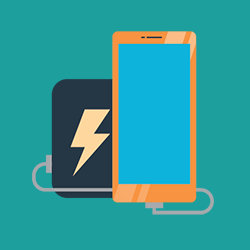Planning out your next vacay, and want to start saving for your epic getaway as soon as possible? We all hate coming back home from a long holiday and feeling like you’re broke. The best way to help you avoid that dreadful feeling is to have an idea on how much your trip is going to cost you, create a budget and then stick to it as much as you can while you’re travelling. A travel budget will not only help you plan your trip better, but it’ll allow you to enjoy a stress-free holiday.
Here’s how to create a realistic travel budget for your next vacay.
Figure out how much it will cost to get to your destination
The best thing to start with when creating a travel budget is to focus on your major expenses - which is usually the cost of how you’re going to get to your destination. Whether it’s flights or train tickets, do some research to figure out what the estimated costs are for tickets during the time you’re wanting to travel. You’ll want to account for other transport costs, such as bus, rental cars, or ferries that also may be included in getting to your destination. If you’re planning to travel to a number of countries or destinations, estimate how much the rates for those trips will be as well. Add up your costs, and present yourself with an estimated figure for getting to your destination.
Estimate your costs for accommodation
Now that you’ve noted the costs of how you’re going to get there, it’s time to start thinking about where you’ll be staying. Whether you’re a backpacker looking to stay in a hostel, or you’re up for luxury travel - it’s important to consider how much it’s going to cost you all up. Looking at websites such as booking.com, trivago, and agoda.com can give you a fair sense of how much accommodation will cost you during your time of travel. Airbnb is also a cheaper alternative if you’re wanting to live like a local, and hostelworld.com offers budget travellers options for cheap hostels.
Take into account the cost for transportation
Before you head off on your travels, you’ll want find out the best way to move around once you reach your destination. Whether you’re up for walking around, cycling, taking public transport or simply relying on an Uber or Taxi - take into account how much it may cost you to get around day-to-day,
Think about what you’ll be eating
Travellers tend to underestimate the cost of food when they’re on vacation. So to ensure you don’t blow your money on food, it’s a good idea to have an idea of what a meal costs in the places you’ll be travelling to. Resources like Lonely Planet Travel Guides, Zomato, or even TripAdvisor can help in getting a better idea of what you can expect to spend on an average meal in the area. While food can end up taking up a large portion of your budget, there are ways to reduce your costs on food - check out our blog post on ways you can save money on food when travelling.
Make a list of the tourist activities you don't want to miss out on
Depending on where you’re travelling to, you’ll probably have a fair idea of what you’d like to do once you get there. If you’re going to Paris, there’s no doubt you’ll probably head up the Eiffel Tower, and if you’re heading to Rome, a walk through the Vatican museums is a must. Wherever you’re going, take note of the attractions and activities that you don’t want to miss. Once you’ve noted your top lists, do some research to figure out the costs of each. This will give you a good idea on how much to set aside for tourist activities. It’s important to also set aside a little bit of money for any impromptu activities or trips to ensure you’ve got some breathing room within your budget for any extra costs that may come your way.
Think about what you’ll be buying
Whether you’re wanting to buy things for yourself, or wanting to bring back gifts and souvenirs for friends and family - it can often take up a chunk of your travel budget. While you mat not have a clear picture of how much things will cost you until you get there, it’s still good to keep some money aside for things you’d like to buy in your travel destination.
Don’t forget to include expenses for visas, travel insurance, and vaccinations
Certain countries and regions require visas for entry, and vaccinations against diseases. Be sure to determine what and if you’ll need them, and take into account their costs. Many travellers often dismiss the need for travel insurance. However, we suggest it to be a priority when travelling anywhere in the world. Unexpected things can happen when travelling, so it’s better to rest easy knowing you’re insured if anything doesn’t go to plan.
Keep money aside for emergencies
When travelling, things don’t always go to plan. It’s important to plan for unforeseen circumstances and emergencies by setting aside some money you can’t necessarily budget for specifically. Anything from extra expenses, medical emergencies,and impromptu events can be covered with the budget you set aside for emergencies.
Want some more travel tips? Head to the The SimCorner Blog for a whole heap of travel advice.
































